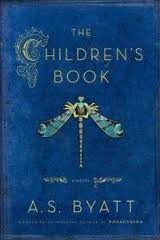When
was the last time you made yourself read a book you just knew you
would hate? Fifteen years ago a colleague and friend told me his all
time favorite book was The Jungle by Upton Sinclair so I read
it. It was dark, depressing, and everyone died in the end! I was so
angry that I couldn't even tell him about reading it! Then that book
kept haunting me. I read what other people said about it, I mentioned
themes and scenarios from the book to others, and mulled it
over. To this day I think about that book and the historic/political
messages it imparted to me. Therefore I am now saying it was one
of the best books I have read and a great classic. I feel the same
about The Orphan Master's Son, the 2013 Pulitzer Prize winner.
You
need to know that it is hard to start, it takes concentration (so not
a choice for escape reading). Alternating chapters change voice,
time, and place. There is a lot of cold calculated violence, and it
takes place in a culture most of us do not understand, which is North
Korea. It is a dystopian horror story with espionage, mystery, and
love mixed in. After a difficult start, it was hard to put down. Many
nights at my house the reading lamp was on until way past 2 a.m.
Part
One: the Biography of Jun Do (pronounced almost like John Doe
(and I am sure that is not a coincidence) tells the tale of a
kidnapper who is trained by the government and sent on missions to
Japan to steal people for use by Kim Jong Il's regime. The
construction of part one is in two voices; one being Jun Do, and the
other the propaganda broadcast to the nation in the form of news and
stories of heroism. Jun Do deconstructs his life for the reader so
one understands how he was programmed to be violent, non-feeling, and
unremorseful in order to do his job. His story is hard to read, it is
ugly, gut-wrenching, and horror filled. That is why I almost couldn't
go on. But after forcing myself, being angry the whole, time I became
aware that I was beginning to understand the science of how slowly
and in increments such a personality is created. The propaganda
chapters are unsettling with the lies presented and the use of
heightened drama. When Jun Do is rewarded for jobs well done, he is
sent to language school and assigned as a foreign language
transmission translator on a fishing vessel. Then he is recruited for
a diplomatic mission to Texas which ends in failure resulting in Jun
Do being sent to a prison work camp. He learns to survive with the
help of a person he had kidnapped in the past. When he meets
Commander Ga, a national hero, in the prison tunnels he sees an
opportunity to escape.
Part
Two: the Confessions of Commander Ga Introduces a third narrator,
an interrogator who tortures political prisoners to get confessions
for crimes against the state. Jun Do has killed Commander Ga, taken
his identity, and been assigned to Sun Moon a famous actress as her
“replacement husband.” He enters the city of Pyongyang and into
the crazed and surrealistic world of Kim Jong Il. “Ga” falls in
love with his new family and while trying to navigate the crazed
world of North Korean politics he embarks on a plan to save his
family. While helping Kim Jong Il host an American diplomatic visit
to North Korea where Il intends to trick and humiliate the Americans, "Ga" Launches his plan. This is an unsettling book to make the hair
stand up on your head. Reading about the author I found that
scenarios in the book are taken from real memoirs of North Korean defectors, and that the author
did spend time both in research and in visiting North Korea.
I am very glad I stuck with it and you will be also if you read The Orphan Master's Son.




















